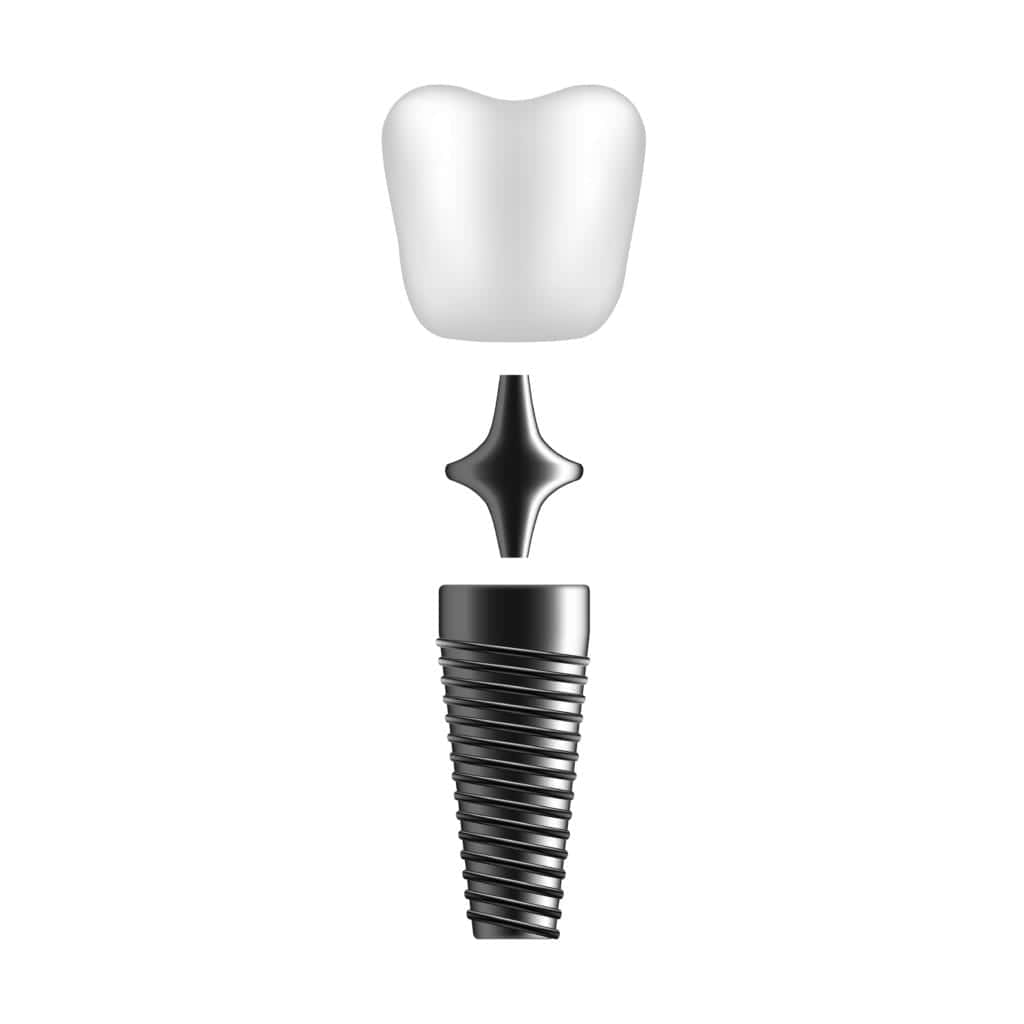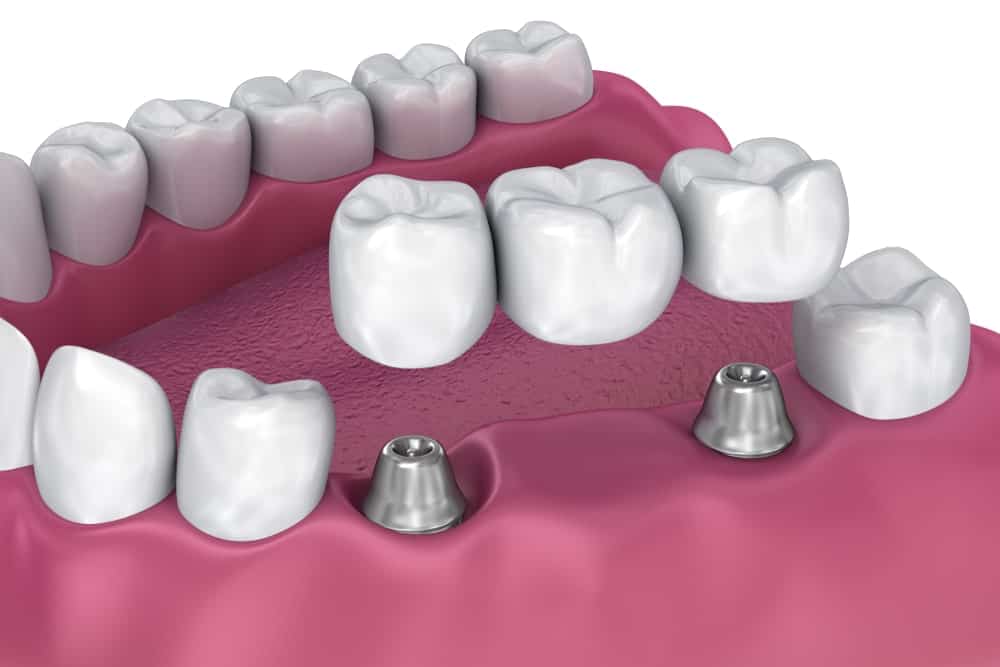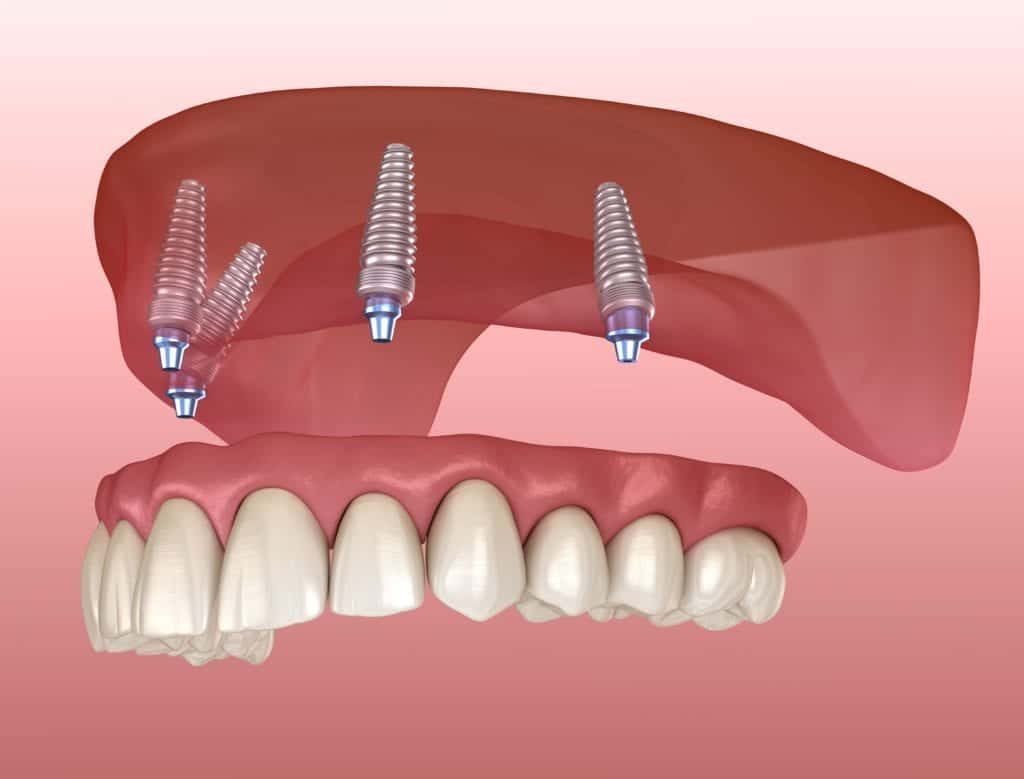Do you have teeth that are severely decayed or damaged? Have past restoration methods begun to fail? Are you missing one or more teeth due to an accident or necessary tooth extraction? If you answered yes to any of these questions, then you may want to consider restorative treatment using dental implants.
Dental implants are artificial tooth roots made from titanium screws that are implanted into the jawbone. Once they fuse with the surrounding bone, they are exceptionally strong and can support a dental prosthesis. There are three main dental prosthesis that are commonly supported by dental implants, including:

Dental Crowns:
A dental crown is a cap that fits over the top of a tooth and is made to match the color and shape of the natural tooth. In cases where a natural tooth can no longer support a dental crown due to severe damage or decay, an implant-supported crown can be used. To place an implant-supported crown, the natural tooth will first need to be extracted. Then an implant screw is placed in the jawbone and an attachment piece, or abutment, is attached. The abutment will protrude out of the gum line and the gums will be sutured around it. Immediately following the implant placement procedure, a temporary dental crown is generally adhered to the abutment. Once the implant site has healed and the bone has fused with the implant, a permanent dental crown will be fabricated and placed. Dental crowns are often used to restore a single missing tooth or multiple missing teeth that are not adjacent to one another.

Dental Bridge:
While a dental crown is a single cap that fits over a damaged or decayed tooth, a dental bridge is made up of two dental crowns with a fake tooth or teeth between them. Due to their different structure, dental bridges are able to restore adjacent teeth that are decayed, damaged, or missing all at once. When used in coordination with dental implants, they are known as an implant-supported bridge. Implant-supported bridges are used when the natural teeth are unable to support a dental prosthesis. Instead, implant-supported bridges use dental implants as a source of support for the dental crowns and fake teeth. The placement of a dental bridge is similar to placing a dental crown, but two dental implants are placed.

Dentures:
Dentures are artificial teeth and gums that are used to restore an entire upper or lower arch of teeth. They are used in cases where a large amount of natural teeth are missing or severely affected by damage or decay. Although dentures can be used as a removable dental prosthesis, fixed dentures used dental implants for permanent stabilization in the mouth. Fixed dentures, also known as implant-supported dentures, are held in place by approximately four dental implants in each arch. For this reason, they are also referred to as All-on-four implants. Placing an implant-supported denture requires the placement of at least four dental implants and the extraction of any remaining decayed or damaged teeth.
As you can see, dental implants can offer support for a variety of dental restoration options such as dental crowns, bridges, and dentures. This allows patients to have some options when considering restorative treatment using dental implants. If you are considering restorative treatment with dental implants for your decayed, damaged, or missing teeth, these are some of the options you can discuss with your local implant dentist.

Dr. Dennis Laurich has been practicing dentistry for over 40 years. He received his DDS degree from the University of Michigan Dental School and regularly attends oral health care conventions to continue his dental education. This allows him to treat patients with the leading dental technology and methodologies. Additionally, he is a member of the American Dental Association, Michigan Dental Association, and the Detroit District Dental Society.
Dr. Dale Flanagin II is a distinguished professional in the field of dentistry, holding a Bachelor’s degree in Molecular Biology and Biotechnology as well as a Doctor of Dental Surgery degree. He is committed to improving the lives of others through his work, driven by a lifelong passion for helping people.





